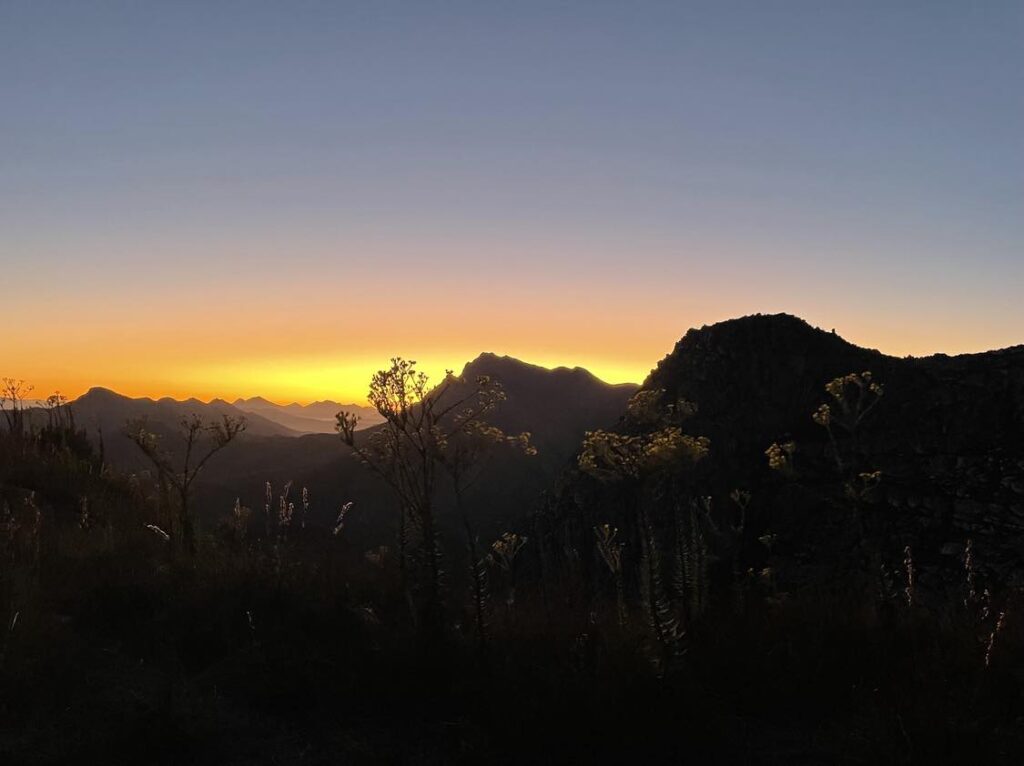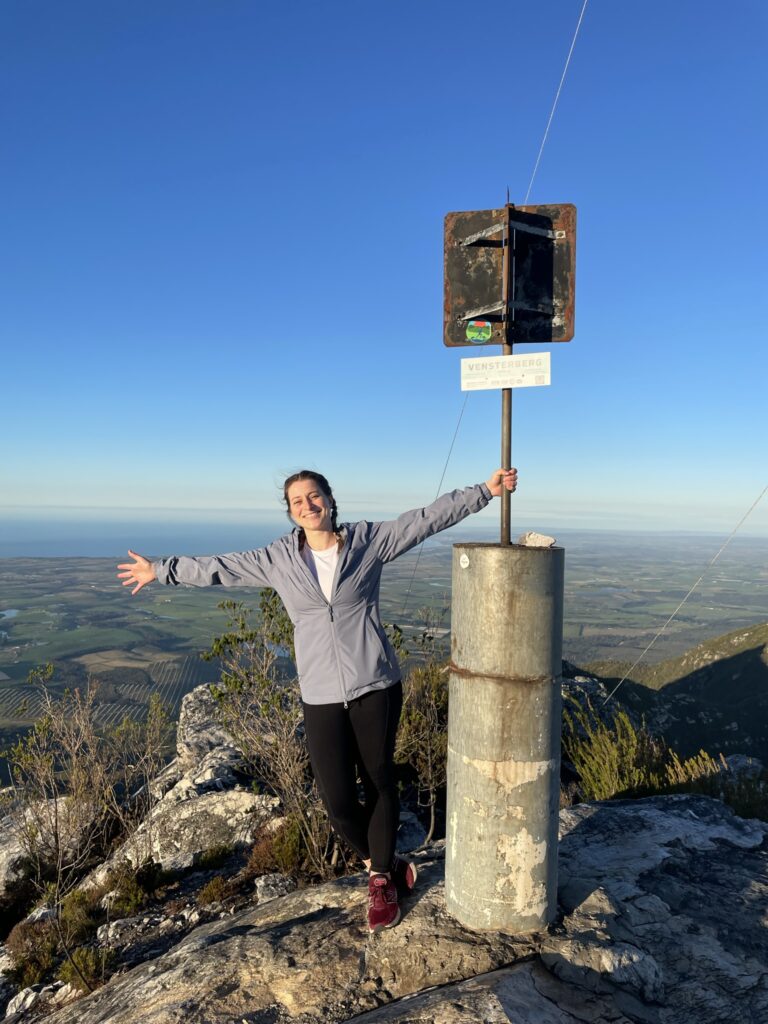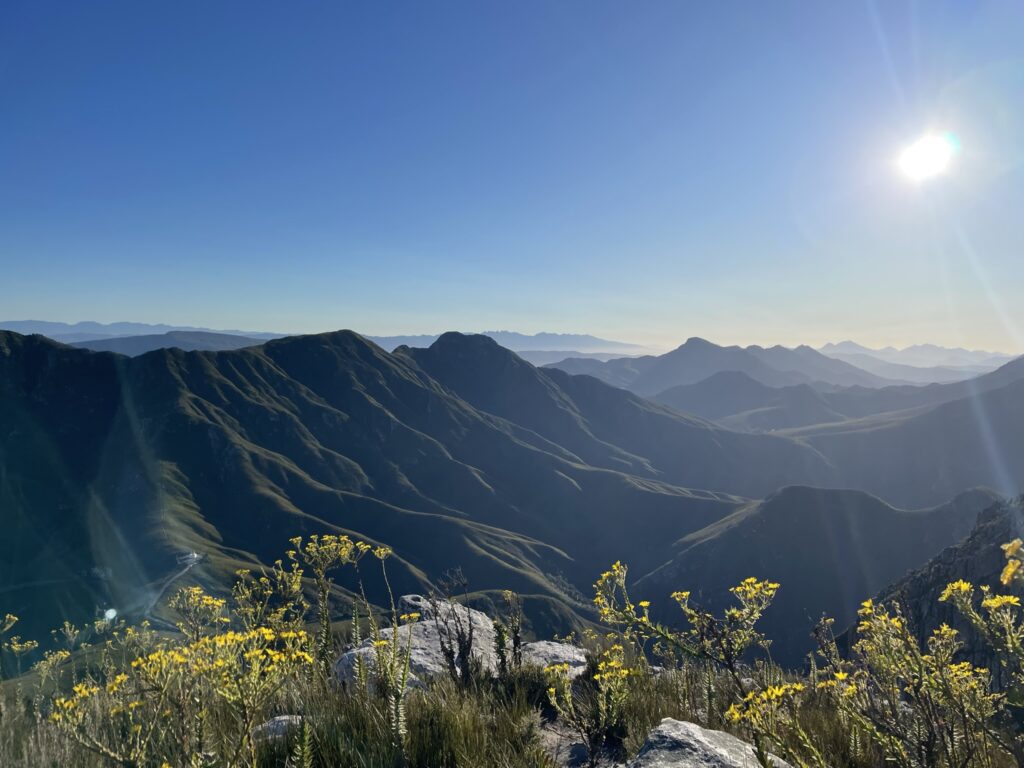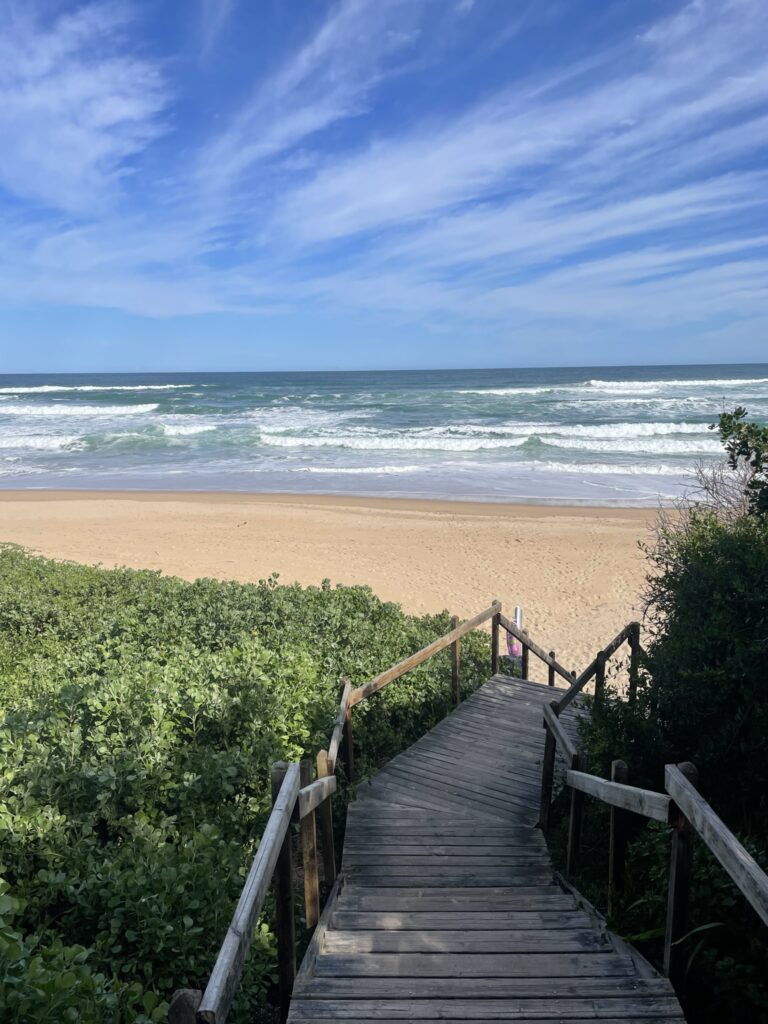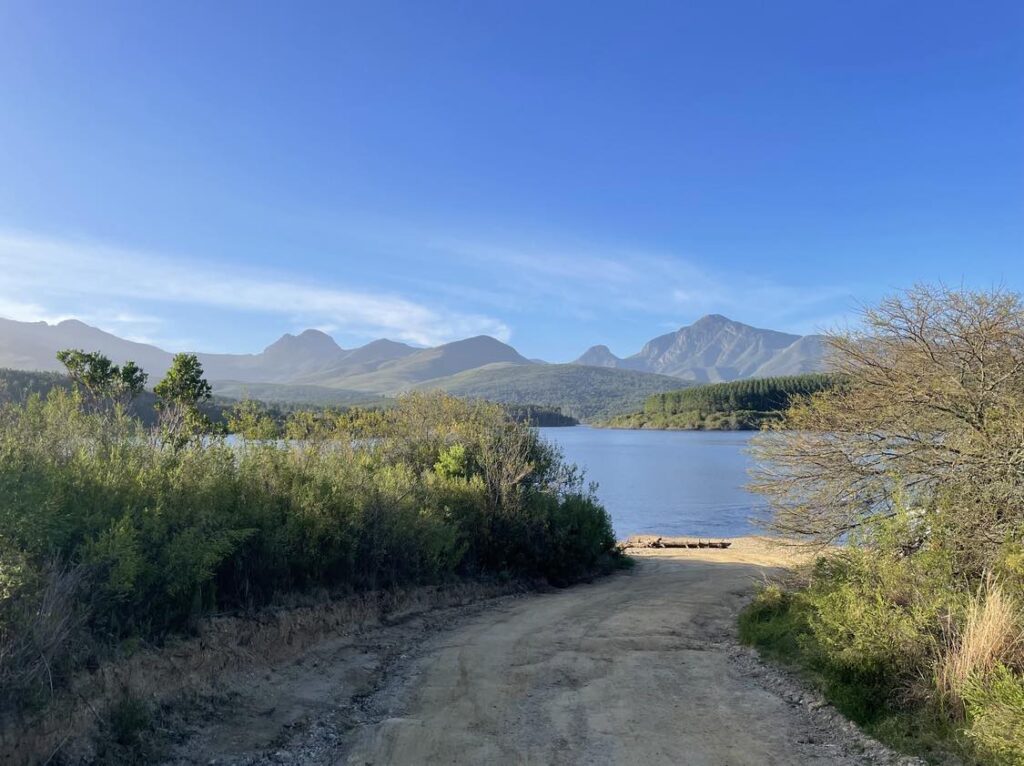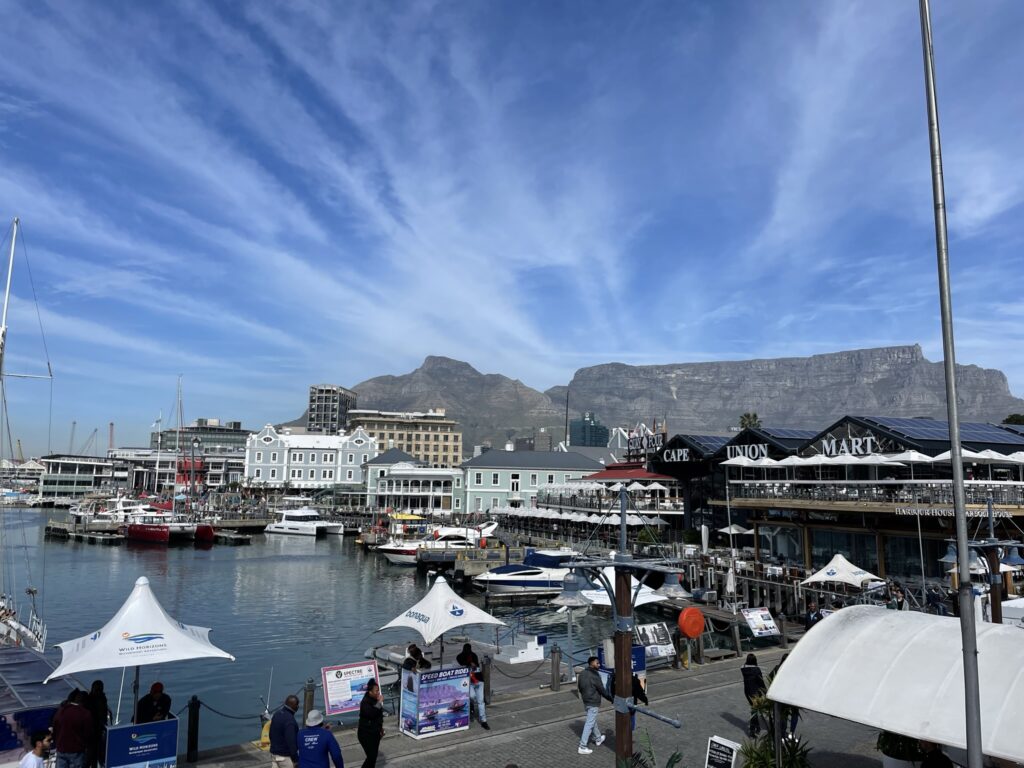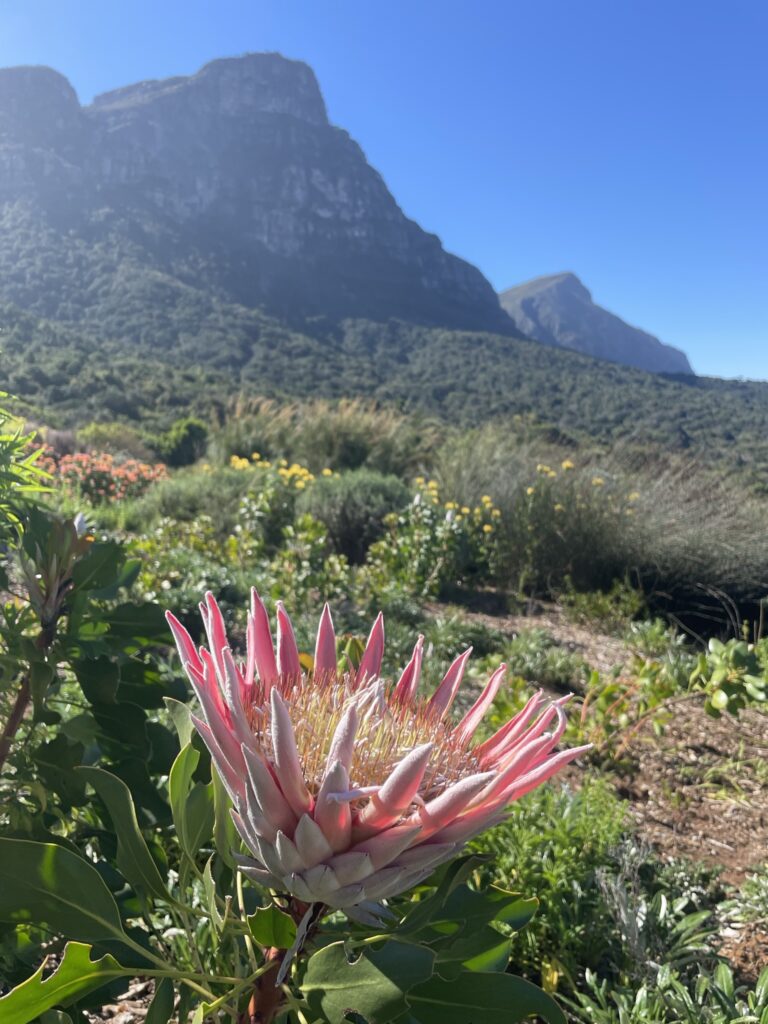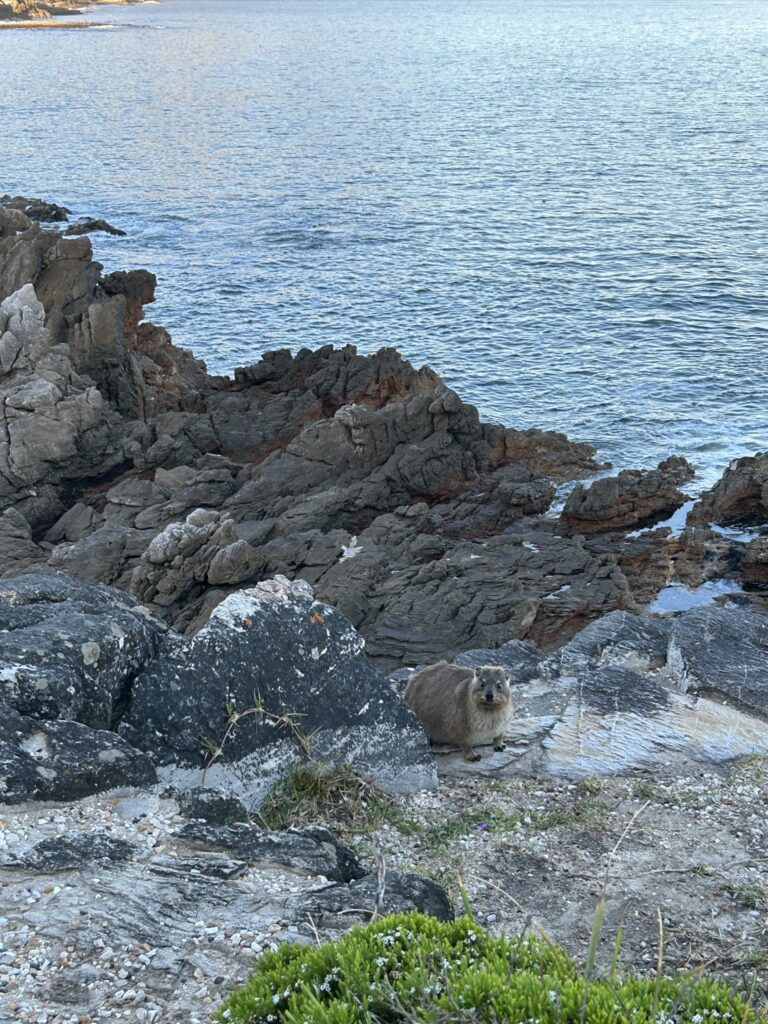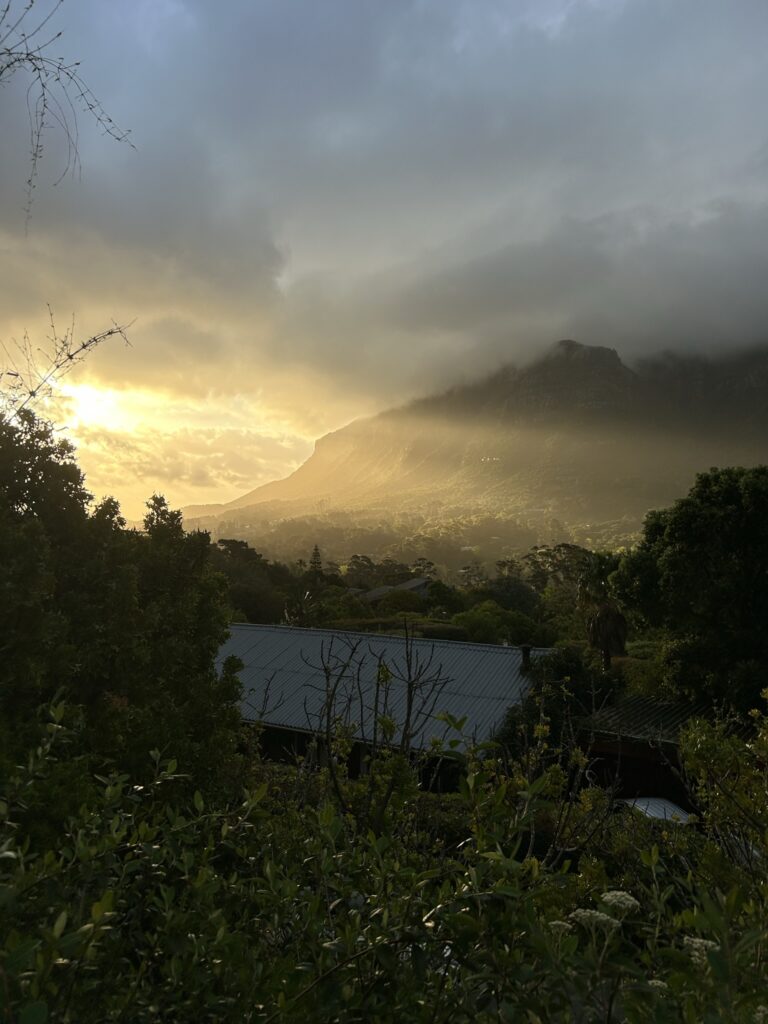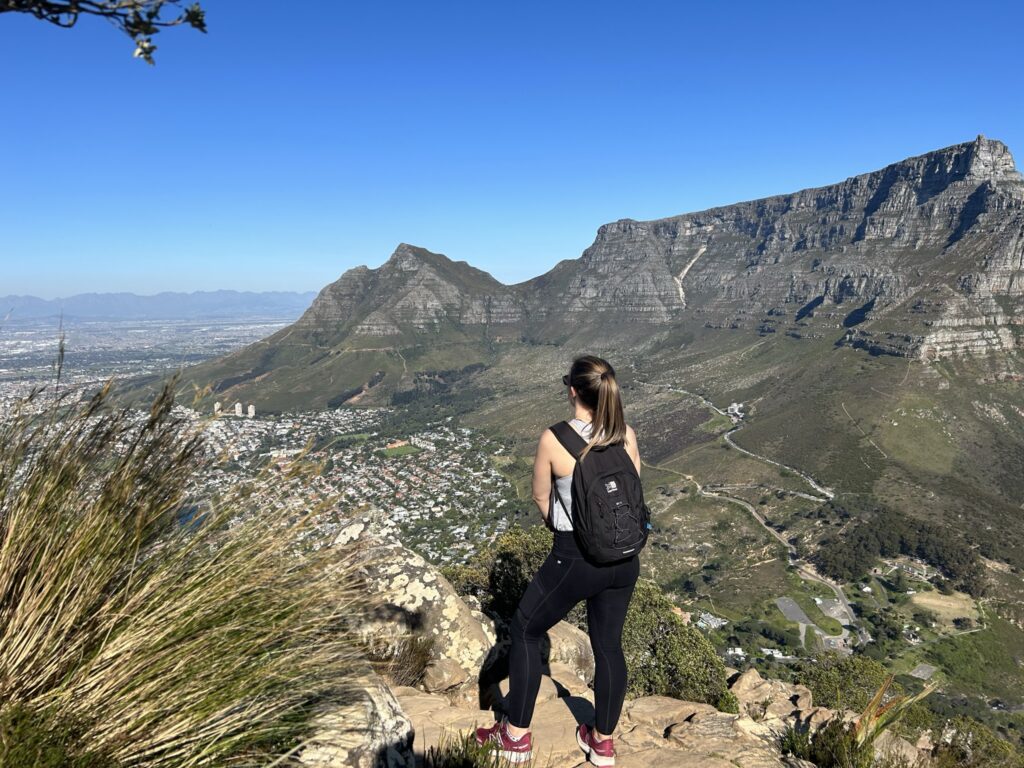
I am a final year ScotGEM student and this year international electives are finally back up and running! For my first block I was lucky enough to be able to go back to South Africa, where I grew up. I ended up in Scotland through being accepted into ScotGEM, and my journey here was via London where I moved for work for a few years, but originally I am from Cape Town, where I trained as a paramedic and worked for a couple of years.
For my elective I chose George, which is 400km outside of Cape Town up the Garden Route, but still in the Western Cape. I asked for this placement as I had been a paramedic student in almost all the hospitals in Cape Town, as well as having worked in Cape Town, and I wanted a slightly more rural experience. Plus, after three years exploring Scotland’s rurality, I was keen to experience rural health care in another country. It helped that I knew someone I could stay with near George as well!
I was placed in the Emergency Centre (EC) in George for 4 weeks and it was a fantastic experience. Another reason I wanted to go back to South Africa was was that I hoped to gain further experience with trauma and practical skills in emergency situations. From being a paramedic in Cape Town I had a pretty good idea of what I was getting myself into. George Regional Hospital has 266 beds, and it is the only regional hospital in the Garden Route and Central Karoo. The specialities covered are Family Medicine, Surgery, Internal Medicine, Paediatrics, Obs & Gynae, Psychiatry and Orthopaedics as well as some tertiary services, such as Maxillofacial surgery, Urology, ENT, Ophthalmology, Oncology and Neonatology. There are no subspecialities like Cardiology, Neurology or Paediatric Surgery – these patient would be transferred to Cape Town for definitive care. George Regional Hospital has the only CT scanner in the area (for a good 400km) and will accept patients from all the nearby district hospitals who require a CT scan. There is a 6-bed High Care Unit, 4 operating theatres and 2 additional day case theatres. The EC sees 40,000 to 45,000 patients per year and is staffed by Family and Emergency Medicine doctors. There are 10 permanent senior doctors working in the unit on a shift-type system, with 3-4 on overnight and 4-6 in the day, with the addition of their interns.
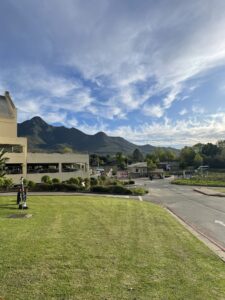
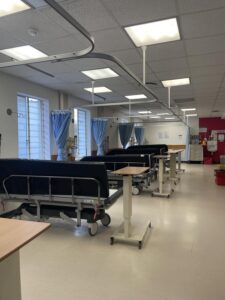
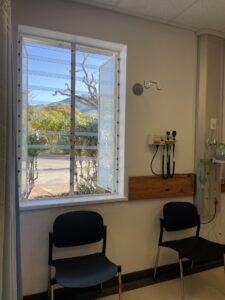
Firstly, the elective placement. What an experience! The team of doctors in the George Hospital EC were incredible. They were so welcoming, friendly and warm. They treated me like one of their own, and I regularly felt like a junior doctor, seeing patients on my own, and reporting back to them with a plan before moving on. I also felt like part of the team as the EC was regularly so busy that I almost felt like I could actually help in the department, which made me really motivated to work hard and learn, as well as come in on more days that I was required to. I feel this greatly increased the learning that I was able to achieve. I also felt I was able to help people, making a small difference in people’s lives, which I found highly motivating. In addition, I was allowed to perform or assist in many skills that I will not be likely to do in Scotland soon such as intercostal drains, extensive suturing, lumbar punctures and burns washes. As there is a high volume of trauma in South Africa, most doctors learn to do intercostal drains independently as students or in their internship years (equivalent of FY) and thus they were keen to teach me to do it myself. Building on my existing knowledge, as I had done these as a student paramedic in South Africa, by the end of the placement I had placed 2 with assistance, and 6 under just observation from the supervising doctor. Suturing is another a skill that once I proved I was competent at, I was often left do with indirect supervision, as they would with their own students, and I was able to participate in some fascinating suturing that would not generally be done in the UK in A&E, such as some extensive facial and scalp trauma.
I also improved some skills that would be more helpful in my FY experience such as cannulation, airway management, minor injury management and casting fractures. One of the biggest challenges for me was the language. I did not realise how widely Afrikaans was spoken in George, with some patients speaking minimal English. Although I could speak it (badly), I had not spoken it in years and was very rusty.
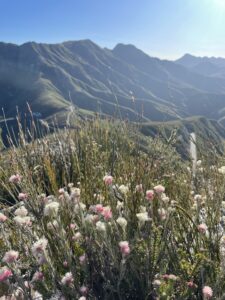
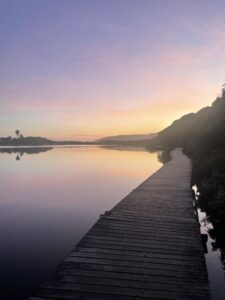
The team were very kind in helping when I initially needed it but by the end I could have a fluent conversation, which was very convenient and definitely helped me to feel part of the team, not having to ask for a translator. However, sometimes that was still needed, as some patients only spoke Xhosa (another of the 11 South African languages) and I only knew how to say very basic greetings!
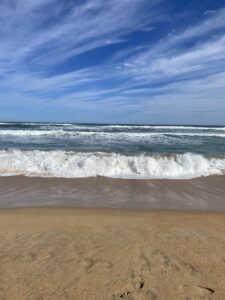
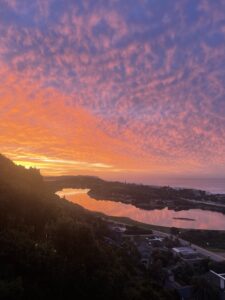
I was lucky enough to meet some Clinical Fellows from the UK (one from Dundee!) doing Global Health Fellowships in South Africa, and we quickly became friends and I was able to experience a lot of the wonderful outdoors of George with company! This made it a lot of fun, as well as a lot safer travelling in a group.
Secondly, the great outdoors were incredible. I went on a wonderful sunrise hike (as well as many in the daytime too), took some surfing lessons, walked on the beach almost every day, and sampled the excellent food that George had to offer. After my elective, I had a bit of extra time in South Africa and got to see whales in Hermanus and dassies all over the cliff-paths, climb up Lion’s Head in Cape Town, go to historic Robben Island and see some old friends that I hadn’t seen in years. I ate so much biltong (a South African specialty – dried meat with spices…better than it sounds!) and dried apricots (my absolute favourite that you cannot get in the UK), as well as many childhood favourites like Rusks and Milo. The nostalgia of the trip made it extra special for me, but I would still recommend it to a first time visitor!
Overall, I would love to go back and visit again and would consider a Global Health Fellowship in the future. In addition, I feel I am better prepared for my FY1 after this incredible experience.
Lydia is a final year ScotGEM student based in Dumfries and Galloway.

